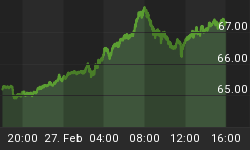Some Thoughts Macro, Value & Austrian
Haven't heard of EROEI? You can be forgiven if its not a topic that is on the tip of your tongue with issues of sovereign insolvency, QE3 and the like dominating the airwaves.
I feel confident that EROEI is an acronym that will receive much wider recognition over the next decade. What is EROEI you ask? It requires energy to produce energy and that relationship is expressed as "Energy Return On Energy Invested" or EROEI for short. Why is EROEI important? Because we are in the process of transitioning from high EROEI sources of hydrocarbon energy to low EROEI sources - think Saudi Arabia versus the Alberta oil sands.
Even if you don't believe that peak oil is an issue, I would argue that EROEI decay is most certainly one. Discoveries of conventional oil total around 2 trillion barrels, of which around 1 trillion barrels have been extracted, leaving approximately 1 trillion barrels remaining. However the first trillion barrels was found on shore or nearby, shallow and concentrated in large reservoirs and generally in politically stable regions - the "easy" oil. The remaining oil is far offshore or deep underground, in smaller, harder-to-find reservoirs and mostly in politically unstable locations - the "difficult" oil.
I believe an increasing dependence on "difficult" oil has some serious consequences for the global economy.
- The amount capable of being produced from a given quantity of reserves - the delivery capacity - will be reduced. This will make it harder to increase overall production even where reserves remain theoretically abundant.
- The cost of extracting remaining reserves will escalate in terms of the energy inputs required which in turn will drive real energy prices upwards.
Current production is around 86 million barrels of oil per day ("BOPD"). However an 86 million BOPD oil production profile of high EROEI sources is very different from 86 million BOPD of low EROEI sources. Effectively the net energy left over to drive economic growth is significantly lower in the latter scenario. Here are some highly approximate EROEI ratios for various energy sources:
- 1970s oil & gas discoveries - 30 to 1
- Current conventional oil & gas discoveries - 20 to 1
- 1980 coal - 20 to 1
- Oil Sands - 5 to 1
- Nuclear - 4 to 1
- Photovoltaics - 4 to 1
- Biofuels - 2 to 1
To engage in a simplistic piece of analysis, assuming 86 million BOPD composed of 1970s oil & gas reserves - there is around 83 million BOPD net to fuel growth. Assuming 100% biofuels then this drops to 43 million BOPD. The farther down the list we must go to maintain supply the worse the net energy situation becomes.
Why do we care about this?
Economic growth is in large part a surplus energy function as well summarized by Chris Martenson in his book "Crash Course". A reduction in surplus energy will increase energy prices at the same time it is putting pressure on growth. If the real cost of hydrocarbon energy is going to increase then the real cost of other commodities will also increase as most have significant energy inputs. On balance, I believe the net result will be a transfer of wealth from commodity consumers to commodity producers.
In less vague terms, the prospect of deteriorating EROEI will certainly increase food prices, as modern agriculture depends heavily on the use of fossil fuels - for machinery, irrigation, fertilizers, herbicides, storage and transportation. Here are just a few examples:
- The US and Canada export million of tons of grain every year - grain that contains large quantities of nitrogen, phosphorus, and potassium. The ongoing export of grain would slowly drain the inherent fertility from cropland if the nutrients were not replaced with man-made fertilizers.
- Irrigation accounts for approximately 20% of US farm energy use and in water constrained locales such as India over half of all electricity is used to drive irrigation pumps.
A rhetorical question - if declining EROEI drives up the real cost of agricultural commodities will it confer a competitive advantage on land with lower energy intensity - e.g. no need for irrigation and low fertilizer use - such as Canadian prairie farmland?
I believe the twentieth century trend of low real commodities prices is in large part a reflection of the abundant, high EROEI supplies of energy that were available during that period. Without new sources of high EROEI energy I would argue that this favorable trend will reverse.
If this is the case then significant amounts of wealth will be transferred from commodity consumers to commodity producers - particularly to producers of commodities with the most inelastic demand curves. Declining EROEI is in part why I believe in 1) direct investments in western Canadian commodity production assets and 2) in investments that serve as proxies for the increasing real cost of commodities - e.g. businesses linked to commodity production.
Kind Regards















